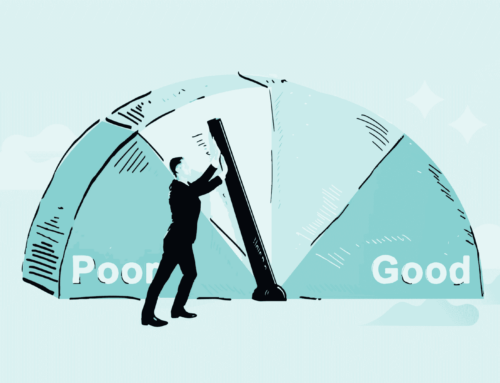Your credit report is not the same thing as your credit score, although they are linked. We’ll talk about the difference between a credit report and a credit score in a moment. But first, let’s discuss what a credit report is and why it is so important to know what it says about you and creditworthiness.
A credit report is a publicly accessible report to help businesses, employers, landlords, creditors, lenders, and so on, make informed decisions about offering credit, accepting applications for loans or new jobs, tenant agreements, partnerships and so on. According to TransUnion credit bureau, a credit report is based on “millions of updates we receive each month from auto dealers, finance companies, banks, credit unions, mortgage companies, retailers, student loan providers, utility companies, public records and more—for virtually every credit-active adult in Canada.”
Sounds a lot like a credit score, doesn’t it? It’s not. Here’s the difference—and then we’ll talk about what your credit report may say about you (and your creditworthiness).
What is a credit report made up of?
First of all, there are three major credit-reporting companies: Equifax, Experian and TransUnion. They all compile their own credit report of you and from that use a unique algorithm to develop a credit score. None of them share information with each other so each report and score are different. Also, some lenders and creditors may only share your credit history with one or two of the credit bureaus, rather than all of them.
In other words, you have three separate and different credit reports and three credit scores that all signify your creditworthiness. Think of your credit reports as comprehensive lists of your payment history and lines of credit. Your credit reports are made up of many moving (and static) parts including:
- Your personal identity: Name, social insurance number, date of birth and so on.
- Credit history: Duration and payment history of various types of credit, such as credit cards, mortgage loans, retail store credit cards and so on.
- Public records: Bankruptcies, consumer proposals, court judgements and so on.
- Collections: Collection reports and child support payments.
- Banking information: Misused bank accounts and closed for purposes accounts.
- Inquiries: Regular inquiries from authorized parties, account review inquiries and others.
Your credit reports are publicly accessible and do not include your credit scores.
For every new credit card you open, account you manage effectively, loan you receive, or mortgage you apply for, for example, your credit report will fluctuate and update with your ongoing current credit history. It is good practice to regularly check your credit report to make sure that the information in there is accurate and complete. After all, there are often mistakes in one’s credit report.
According to Equifax: You’re entitled to a free copy of your credit reports every 12 months from each of the three nationwide credit bureaus by visiting www.annualcreditreport.com.
What is a credit score?
From the contents of your credit reports, each credit bureau creates a numerical 3-digit value (your credit score) that distills all of the constantly updating information in your credit report down to your overall creditworthiness. This number is your credit score. It is a temporary snapshot of your credit report at the time that the inquiry took place and changes frequently.
We wrote a blog post on the 3-digit number that you’ll always be judged by as well as 5 factors affecting your credit score right now. Brush up on your credit score reading and find out how to improve your credit report—and by extension, your credit score.
To save you some time digging around, generally speaking, a credit score of:
- 0 – 574: Bad
- 575 – 689: Below average to average
- 690 – 740: Good
- 741 – 900: Excellent
Just like your multiple credit reports, you have multiple credit scores. Regardless, these are very important to your future because they all represent your credit risk—and likelihood that you will pay bills on time. They could, for example, affect your ability to get a loan and at a good interest rate and timeline.
At Marble, we have an application called Score-Up that allows you to check your credit score and credit report without penalty and start improving your creditworthiness. Our technology suggests step-by-step plans to increase your current credit score and remove any credit report errors immediately. Find out more today.






